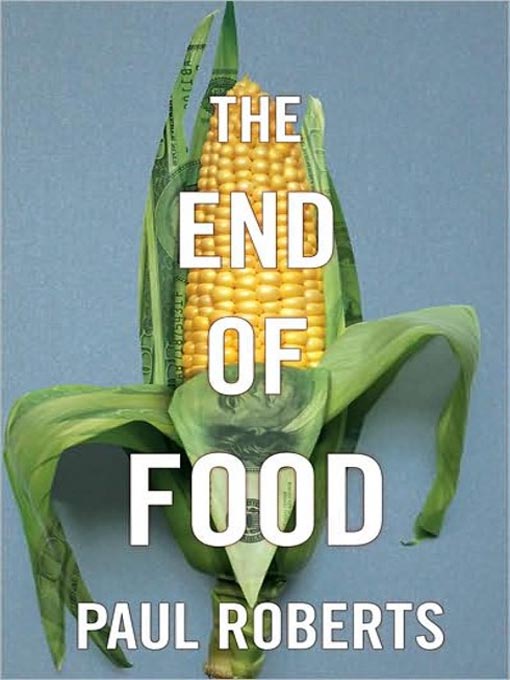
The End of Food
فرمت کتاب
audiobook
تاریخ انتشار
2008
نویسنده
William Dufrisناشر
Tantor Media, Inc.شابک
9781400175994
کتاب های مرتبط
- اطلاعات
- نقد و بررسی
- دیدگاه کاربران
نقد و بررسی

Paul Roberts critiques the current system of food production, both domestic and international, and it is a scary world. Roberts shows how seemingly disparate problems--first-world obesity, third-world hunger, food-borne pathogens, rising fuel costs, pollution, and climate change--are connected and are logical responses to an unsustainable large-scale, hyperefficient food system. William Dufris employs an energetic and lively manner to hold the listener's interest while maintaining a note of matter-of-factness that adds to the grimness and peril. He is adept at delivering the mix of seriousness and astonishment clearly intended by Roberts. Dufris's pacing is also entirely appropriate for material that is often complex. A faster pace could leave the listener behind; a slower one could dull the impact of the material. A.B. (c) AudioFile 2008, Portland, Maine

April 14, 2008
This potentially interesting investigation into the challenges of global food production and distribution is marred by the burial of its argument at the end of the book. Beneath a history of food (old news to any reader of Michael Pollan), factoid avalanches and future-tense fretting, Roberts (The End of Oil
) makes a familiar plea for rethinking food systems. When the author illustrates his points with actual players, the narrative becomes affecting and memorable: a French meat packer shows how retail powerhouses dictate prices; a Kenyan farmer demonstrates how “hunger-ending” technologies are often poorly suited to the climates, soils and infrastructures in malnourished regions. Unfortunately, these anecdotes are overshadowed by colorless recitations of Internet research and data culled from interviews. Roberts worries about our “vast and overworked system” and proffers the usual solutions: eat less (land-based) meat, farm more fish, support regional (not just local) agriculture and pressure food policy makers to fund research into more sustainable farming methods (including genetic modification). Despite the undeniable urgency of the issue, Roberts’s arguments are as commonplace as his prescriptions.

June 2, 2008
Food shouldn't be handled like other market economies and if it continues to do so, the system will self-destruct. With detailed information and extensive anecdotal evidence, Roberts provides an intriguing account of food that works well in illustrating the evolution, the problems, and the subtleties of today's food industry. Unlike other food-writers, his assessment of the food industry is not entirely scathing but rather recognizes the inability of many within the industry to make significant changes. William Dufris is thorough in his delivery and excellent with his tone, timing, and emphasis during Roberts' more complicated prose (of which there is plenty). His quoting voice doesn't always match up with the speaker in terms of projection and personality. He maintains his rhythm and projection for most of the production with less than a handful of vocal shifts in the recording. A Houghton Mifflin hardcover (Reviews, Apr. 14).

August 25, 2008
Food shouldn't be handled like other market economies and if it continues to do so, the system will self-destruct. With detailed information and extensive anecdotal evidence, Roberts provides an intriguing account of food that works well in illustrating the evolution, the problems, and the subtleties of today's food industry. Unlike other food-writers, his assessment of the food industry is not entirely scathing but rather recognizes the inability of many within the industry to make significant changes. William Dufris is thorough in his delivery and excellent with his tone, timing, and emphasis during Roberts' more complicated prose (of which there is plenty). His quoting voice doesn't always match up with the speaker in terms of projection and personality. He maintains his rhythm and projection for most of the production with less than a handful of vocal shifts in the recording. A Houghton Mifflin hardcover (Reviews, Apr. 14).
Copyright 2008 Library Journal, LLC Used with permission.

























دیدگاه کاربران